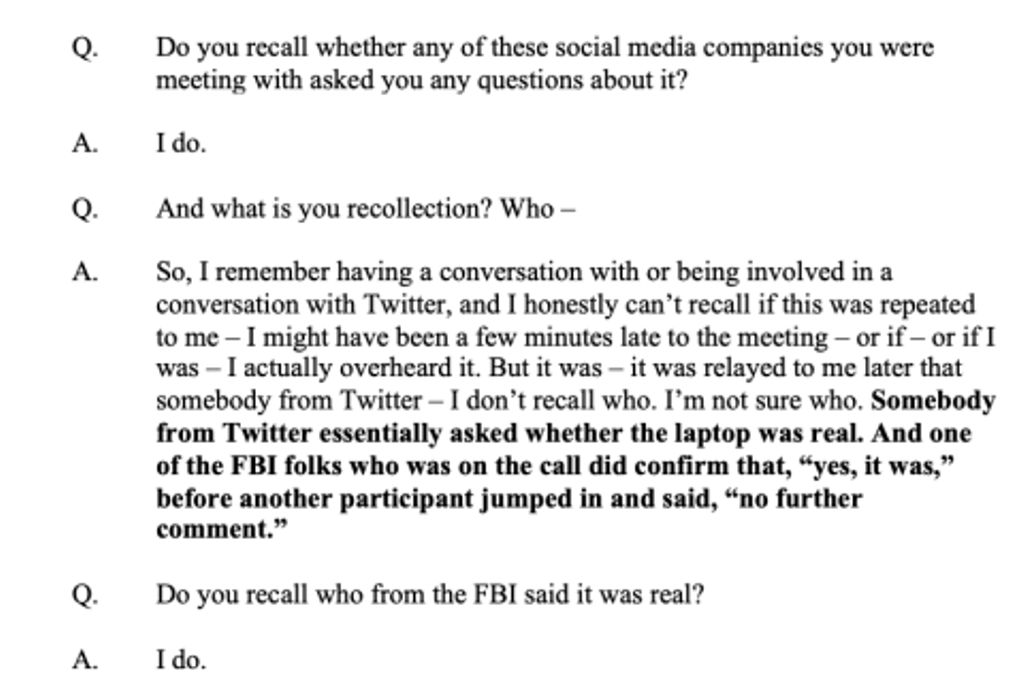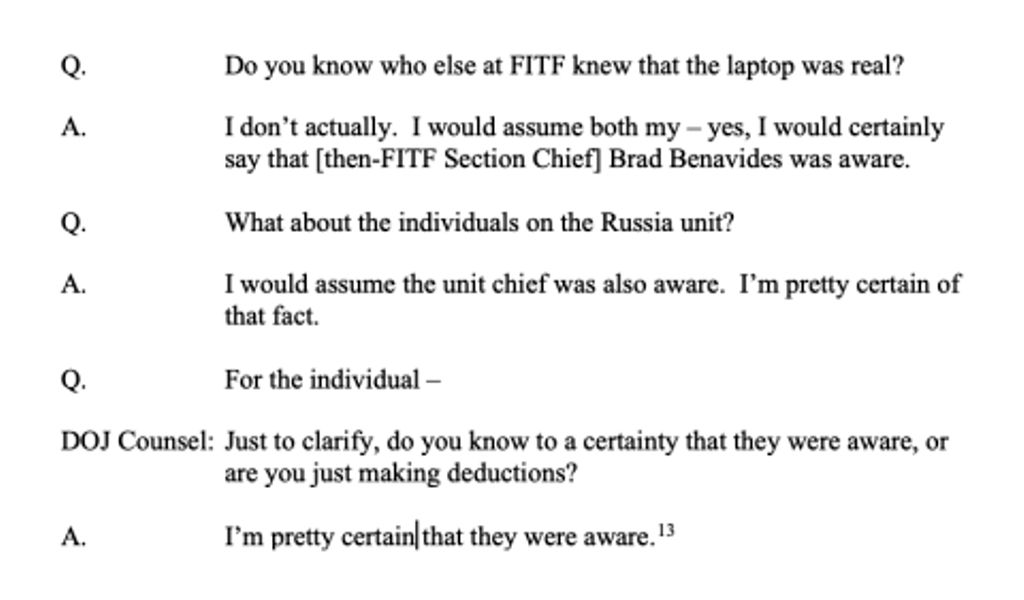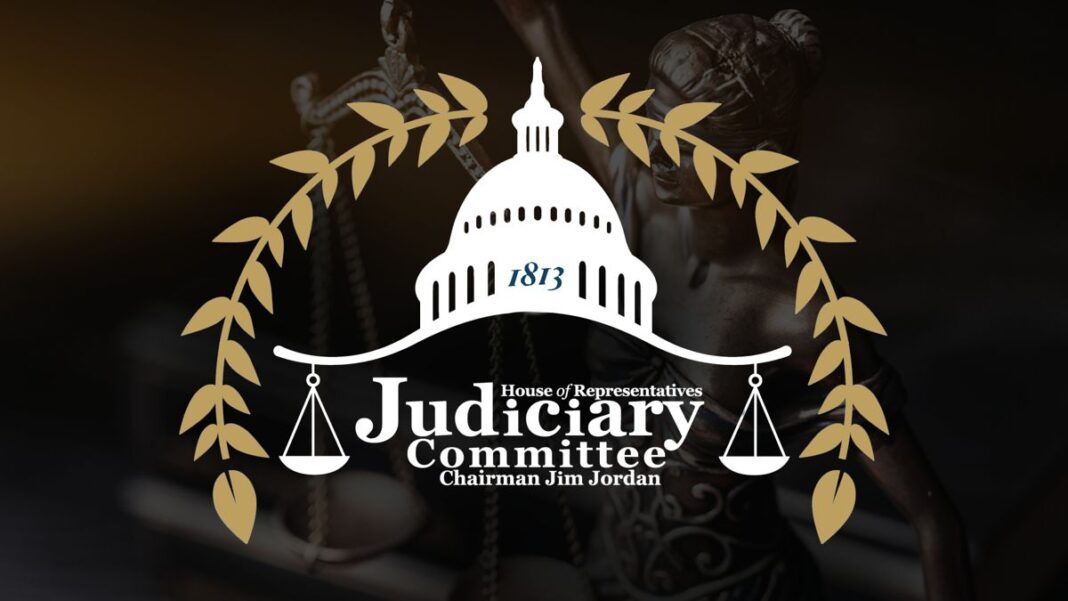WASHINGTON, D.C. – On July 17, 2023, the House Judiciary Committee and Subcommittee on the Weaponization of the Federal Government conducted a transcribed interview of Laura Dehmlow, the Section Chief of the FBI’s Foreign Influence Task Force (FITF). During her transcribed interview, Dehmlow revealed that the same FBI personnel who were warning social media companies about a potential Russian “hack and leak” operation in the run-up to the 2020 election knew that the laptop belonging to Hunter Biden was not Russian disinformation. After the New York Post broke a story based on the contents of the laptop about Biden family influence peddling, the FBI made the institutional decision to refuse to answer direct questions from social media companies about the laptop’s authenticity—despite months of constant information sharing up to that time. Put simply, after the FBI conditioned social media companies to believe that the laptop was the product of a hack-and-dump operation, the Bureau stopped its information sharing, allowing social media companies to conclude that the New York Post story was Russian disinformation.
The Post published its story early in the morning on October 14. That same day, representatives from the FBI’s Foreign Influence Task Force attended a previously scheduled meeting with Twitter, during which a Twitter employee asked the FITF about the authenticity of laptop. According to Section Chief Dehmlow’s testimony, an analyst in the FBI’s Criminal Investigative Division embedded in FITF began to respond that the laptop was real, when an FBI lawyer interrupted to say that the FBI had “no further comment,” regarding the laptop’s provenance:

Later on October 14, FITF met with Facebook. During the FITF-Facebook meeting, Dehmlow responded to a similar question from a Facebook employee about Hunter Biden’s laptop by stating that the FBI, again, had “no comment.” The FBI made this decision despite being in possession of the laptop and having confirmed its authenticity. According to Dehmlow, multiple personnel on FITF knew that the laptop was real. She testified:

In the hours following publication of the Post’s story, Twitter blocked the story from being shared, while Facebook deamplified the story, significantly reducing its circulation and prevalence in users’ newsfeeds. As the federal court in Missouri v. Biden explained in damning language, the FBI’s actions prevented millions of Americans from having a clear understanding about a salient issue in the 2020 presidential election:
The FBI’s failure to alert social-media companies that the Hunter Biden laptop was real, and not mere Russian disinformation, is particularly troubling. The FBI had the laptop in their possession since December 2019 and had warned social-media companies to look for a “hack and dump” operation by the Russians prior to the 2020 election. Even after Facebook specifically asked whether the Hunter Biden laptop story was Russian disinformation, Dehmlow of the FBI refused to comment, resulting in the social-media companies’ suppression of the story. As a result, millions of U.S. citizens did not hear the story prior to the November 3, 2020 election.
Prior to the presidential election on November 3, 2020, the FBI never formally revealed that the laptop was “real” and in the FBI’s possession. As Dehmlow testified to the Committee, had the Hunter Biden story been a product of an actual Russian disinformation campaign, FITF would have been fully authorized to warn the companies of such a campaign: “But if there is a foreign malign influence operation and we’ve got specific details about how those actors are propagating information operations, influence operations on platforms, that’s something we could share the specific details of.” Instead, the refusal of FBI officials—the very officials who knew the laptop was real—to verify the authenticity of the laptop allowed widespread censorship about an otherwise accurate news story.
Read the full letter to FBI Director Christopher Wray below and here.
###






